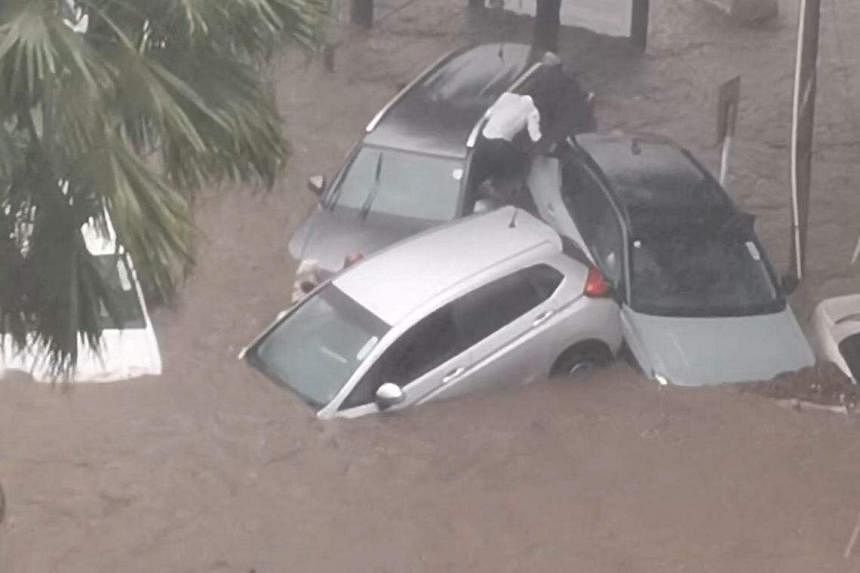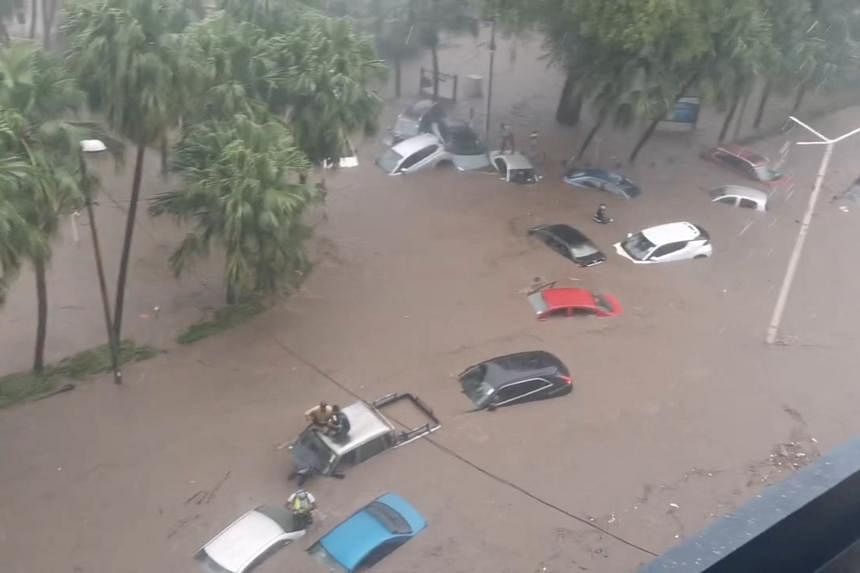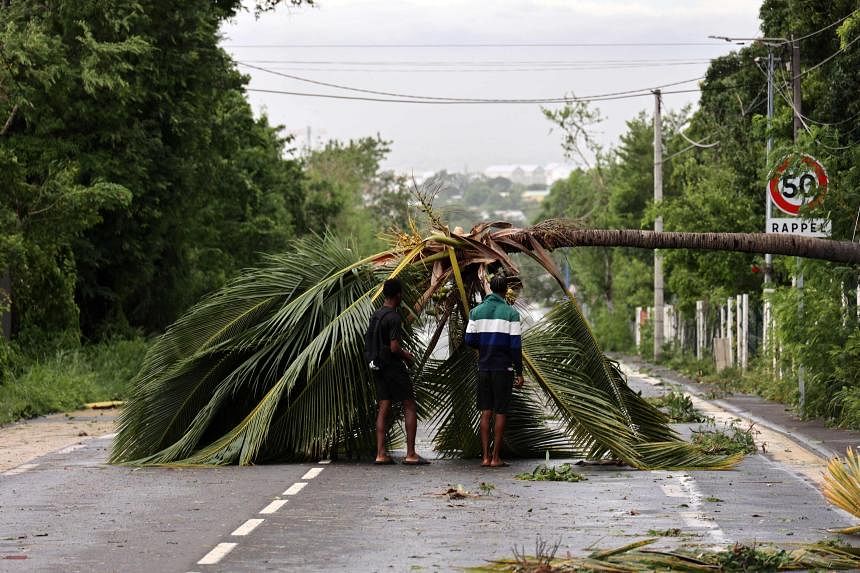PORT LOUIS - Mauritius removed a maximum cyclone alert warning on Jan 16 as it assessed the devastation wrought by Tropical Storm Belal on the Indian Ocean island nation.
Belal has claimed the life of one person in the remote island, left thousands without power and caused traffic chaos with numerous cars submerged under floodwaters or piled up on streets.
The Mauritius Meteorological Services (MMS) said a “safety bulletin” was now in force as Belal was moving away from Mauritius, three hours after announcing it was raising its alert to four, the maximum level.
The government on Jan 15 ordered inhabitants to stay indoors, but the restriction was eased on Jan 16, with the MMS saying in a 0610 GMT (2.10pm Singapore time) update that the public was “strongly advised to maintain precaution and stay in safe places”.
The National Emergency Operations Command warned that winds of 80kmh were expected and waves of up to 7m, posing a risk of flooding in low-altitude areas.
The police said the body of a motorcyclist was found on a flooded highway, the victim of a road accident.
Mauritian Prime Minister Pravind Jugnauth, in a statement on national television on Jan 15, confirmed one fatality.
Belal had already battered the French overseas territory of Reunion, leaving one person dead. The authorities there announced that its red alert would be lifted on Jan 16.
The international airport in Mauritius was closed on Jan 15 until further notice and Air Mauritius said several flights scheduled for Jan 16, including to France and South Africa, were cancelled.
In its update, the MMS said Belal was about 210km off Blue Bay, which lies on the south-east of Mauritius.
“It is moving away from our region in a general east-south-easterly direction at a speed of about 18kmh. Hence, there are no longer any risks of having cyclonic conditions over Mauritius, but other environmental risks exist.”
In his address on Jan 15, Mr Jugnauth criticised the meteorological agency and announced that its director had submitted his resignation.
“I have to admit that the country has had a difficult time because of cyclone Belal,” he said, adding that all decisions made by the government had depended on information from the MMS.
“I am surprised that the arrival of the heavy rains was not anticipated by the weather services. I share the anger of many Mauritians. Those responsible will have to assume their responsibilities.”
The Central Electricity Board said 8,400 people in Mauritius, which has a population of nearly 1.3 million, were without power.

Before the Covid-19 pandemic, tourism accounted for almost a quarter of Mauritius’ gross domestic product, with tourists wooed by its spectacular white beaches and turquoise waters.
About a dozen storms or cyclones occur each year in the south-west Indian Ocean during the November to April season.
In February 2023, Mauritius was lashed by heavy rains and high winds from Cyclone Freddy, which caused a wave of death and destruction in south-eastern Africa including Malawi, Mozambique and Madagascar. AFP


